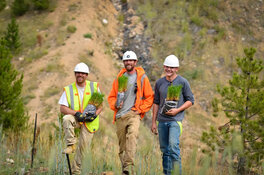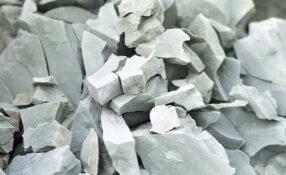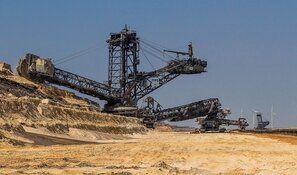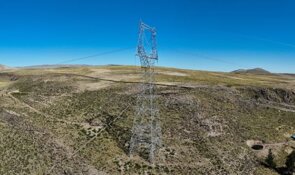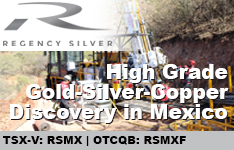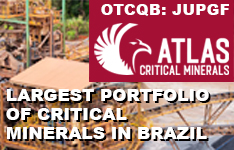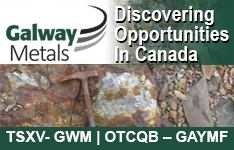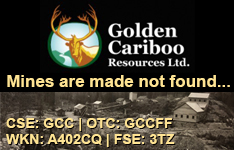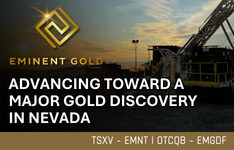Atlas Lithium Corp. (ATLX:NASDAQ) announced that its subsidiary, Atlas Critical Minerals Corp. (JUPGF:OTCQB), has released results from its recent technical studies on two distinct rare earth element (REE) projects in Brazil. The update confirms meaningful mineralization at both the Iporá Ionic Clay Project in Goiás State and the Alto do Paranaíba Project in Minas Gerais State.
According to the company, the Iporá Project returned high-grade intercepts including 8 meters at 2,071 parts per million (ppm) total rare earth oxides (TREO) and a peak one-meter interval grading 3,822 ppm TREO. Magnetic rare earth oxides (MREO) comprised a significant portion, with recoveries of over 60% for critical permanent magnet materials. Heavy rare earth oxides (HREO) and yttrium demonstrated recovery rates of 55% and 63%, respectively.
At the Alto do Paranaíba Project, mineralization included grades of up to 28,870 ppm TREO, with consistent high-grade results across all exploration blocks. The company reported a strong correlation between REE and titanium mineralization, suggesting potential for co-product recovery. Both projects are situated in established Brazilian mining jurisdictions with access to infrastructure such as power, water, and road networks.
Marc Fogassa, CEO and Chairman of Atlas Lithium, stated in the news release, "The outstanding results from both the ionic clay and conglomerate-hosted rare earth systems demonstrate the exceptional geological potential of our subsidiary's Brazilian portfolio." He noted that Atlas Lithium's approximate 30% ownership in Atlas Critical Minerals offers exposure to rare earths, titanium, graphite, and uranium across more than 218,000 hectares of mineral rights in Brazil.
West Looks Inward as Rare Earth Pressures Intensify
The rare earths sector is experiencing renewed strain as geopolitical tensions, trade restrictions, and market intervention reshape supply dynamics. In a September 9 report from OilPrice.com, the U.S. government announced a US$5 million commitment to support the Carina rare earth project in Brazil. The project targets ionic clay mineralization rich in heavy rare earth elements, and the investment was described as supporting "exactly the type of heavy rare earth source the West badly needs to offset China's near-monopoly."
The same report noted a 2.15% month-over-month increase in the Rare Earths Monthly Metals Index. Neodymium prices surged 26.87% to US$87,214 per metric ton, while praseodymium-neodymium oxide climbed 15.45% to US$72,256.87. Neodymium-iron-boron magnets, which rely on NdPr, are essential components in electric vehicle motors, wind turbines, and military systems. Although Chinese NdPr oxide prices dipped slightly following a late-August spike, they remained significantly higher than earlier in the summer, prompting downstream buyers to adopt strategies such as stockpiling and dual sourcing.
OilPrice.com also highlighted a U.S. initiative to introduce a US$110 per kilogram price floor for NdPr. This measure, it said, "effectively establishes a new higher baseline for Western producers," aimed at reducing vulnerability to global pricing swings and stimulating investment.
At the same time, Europe continues to experience rare earth trade disruptions. According to a September 16 article from FT.com, delays in China's export license process have impacted European companies. Jens Eskelund, president of the EU Chamber of Commerce in China, reported that fewer than one in four of over 140 export license applications submitted since April had been approved. Despite prior commitments from Chinese officials to ease restrictions, delays reportedly worsened in September. "We have a number of members who are right now suffering significant losses because of these bottlenecks," Eskelund said.
China's exports of rare earth permanent magnets to the United States declined in August, reflecting growing uncertainty tied to the ongoing US-China trade dispute. According to official customs data cited by MyNews on September 22, shipments to the US fell 5% month-over-month to 590 tonnes, representing a 12% year-over-year decrease, even as total Chinese magnet exports rose to their highest level since January. By contrast, exports to the European Union surged, with the bloc accounting for 42% of total shipments. Despite an earlier agreement between Washington and Beijing to ease restrictions, China continues to exert leverage over the global rare earth supply chain. Analysts noted that Beijing's export licensing process remains slow, with only 19 of 141 EU applications approved by early September. The European Chamber of Commerce warned that production stoppages in Europe were increasing, calling for a more predictable export framework. At the same time, the US has escalated domestic investment, with the Pentagon injecting US$400 million into MP Materials in an effort to reduce dependence on Chinese supply.
Analysts Cite Strong Fundamentals and Synergistic Strategy at Atlas Lithium
Atlas Lithium Corporation, which holds a major stake in Atlas Critical Minerals, continues to receive favorable coverage from analysts who point to its low-cost structure, accelerating project timelines, and alignment with global energy transition goals.
In a July 14 research note, H.C. Wainwright & Co. analyst Heiko Ihle reaffirmed a Buy rating on the company and named Atlas one of the firm's "Top Picks for 2025." Ihle assigned a US$18 price target, citing a potential 349% upside from the then-current share price of US$4.01. "With Atlas' low-cost operations nearing first production, we believe that the company is well-positioned to generate strong long-term returns and provide valuable geopolitical diversification," Ihle wrote.
He highlighted the company's operating cost of US$489 per ton of lithium concentrate and referenced US$80 million in combined offtake and investment agreements backing its phased production strategy. These include 150,000 tons for Phase 1 and a proposed 300,000-ton Phase 2 expansion. Ihle also noted the establishment of Atlas Critical Minerals as a key complement to the company's flagship Neves Project, writing that the new subsidiary "complements the firm's Neves project, as we expect the near-term cash flow to support Atlas' long-term strategy of becoming a leading player in global energy transition."
Alliance Global Partners analyst Jake Sekelsky echoed this positive outlook in an August 5 update following the release of Atlas Lithium's Definitive Feasibility Study (DFS) for the Neves Project. The firm reiterated a Buy rating and a US$20 price target, implying a 254% return from the share price of US$5.65 at the time. Sekelsky described the DFS as "an inflection point on the road to lithium production," underscoring the project's capital efficiency and robust economic profile.
According to the report, the DFS projected an after-tax net present value (NPV) of approximately US$540 million and an internal rate of return (IRR) of 145% based on a US$1,700 per ton SC5.5 price. Even under a more conservative pricing assumption of US$1,200 per ton, the NPV remained at US$260 million — more than double the company's enterprise value at the time. Sekelsky noted that Atlas had already invested US$30 million in development, with a US$40 million prepayment facility expected to cover most of the remaining capital needs.
"The limited capex remaining, coupled with Neves' status as a shovel-ready project, places Atlas in pole position to become the next lithium producer in Brazil's lithium valley," Sekelsky wrote. He added that the project's modular processing design offers flexibility to support future expansion.
Catalysts: A Dual-Deposit Strategy With Strategic Positioning
Atlas Critical Minerals' rare earth strategy is notable for its diversification across both ionic clay and conglomerate-hosted deposit types. This approach may offer operational flexibility through varied processing techniques and project sequencing options, potentially helping the company manage costs and development timelines across its portfolio.
 Streetwise Ownership Overview*
Streetwise Ownership Overview*
Atlas Critical Minerals Corp. (JUPGF:OTCQB)
The Iporá Project benefits from its location near Serra Verde, one of the only integrated rare earth mining and processing operations outside Asia. Meanwhile, the Alto do Paranaíba Project is strategically located in a region with established mining activity and robust infrastructure, including roads linked to intercontinental ports.
Atlas Lithium's corporate materials emphasize the company's positioning within global supply chains for critical minerals linked to electrification and defense, particularly given the geopolitical significance of rare earth production. The company's investment in Atlas Critical Minerals provides direct access to this broader sector beyond its primary lithium focus at the Neves Project.
As part of its broader strategy, Atlas Lithium maintains one of the largest lithium exploration footprints in Brazil and holds an ownership interest in a portfolio of critical mineral assets. Its integrated approach may help it benefit from synergies across related sectors, with operational data and exploration results continuing to inform its asset development approach.
Ownership and Share Structure
According to Atlas Lithium, its management and insiders own about 27% of the company's shares. Strategic partners, including Mitsui & Co., hold another roughly 10%. Institutional investors own about 10%. The rest is in retail.
Refinitiv reports that Atlas has 19.58M outstanding shares and 11.43M free float traded shares. Its market cap is US$117.3M. Its 52-week range is US$3.54–US$12.48 per share.
In terms of Atlas Critical Minerals, according to the company, about 30% is owned by insiders and management.
~30% is held by Atlas Lithium. The rest is institutions and retail.
Its market cap is ~US$44.6 million with 38.9 million shares outstanding. It trades in a 52-week range of US$0.40 and US$2.65.
Important Disclosures:
- Atlas Lithium and Atlas Critical are billboard sponsors of Streetwise Reports and pays SWR a monthly sponsorship fee between US$3,000 and US$6,000.
- As of the date of this article, officers and/or employees of Streetwise Reports LLC (including members of their household) own securities of Atlas Lithium and Atlas Critical.
- James Guttman wrote this article for Streetwise Reports LLC and provides services to Streetwise Reports as an employee.
- This article does not constitute investment advice and is not a solicitation for any investment. Streetwise Reports does not render general or specific investment advice and the information on Streetwise Reports should not be considered a recommendation to buy or sell any security. Each reader is encouraged to consult with his or her personal financial adviser and perform their own comprehensive investment research. By opening this page, each reader accepts and agrees to Streetwise Reports' terms of use and full legal disclaimer. Streetwise Reports does not endorse or recommend the business, products, services or securities of any company.
For additional disclosures, please click here.


